Cats are known for their curious and sometimes quirky behaviors. One of these behaviors includes eating ants, which can be puzzling and concerning for cat owners. Why do cats eat ants, and what can you do to prevent them from doing so?
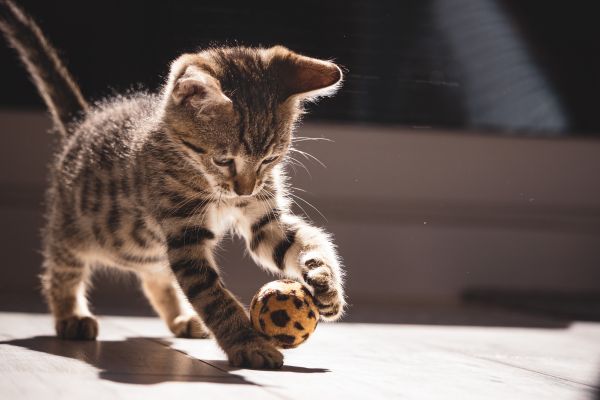
In this detailed blog, we will explore the reasons behind this behavior, the potential risks, and effective methods to get rid of ants in your home.
Why Do Cats Eat Ants?
Cats eat ants for various reasons, ranging from their natural hunting instincts to the interesting scent ants emit. Understanding these reasons can help you manage this behavior and ensure your cat’s safety.
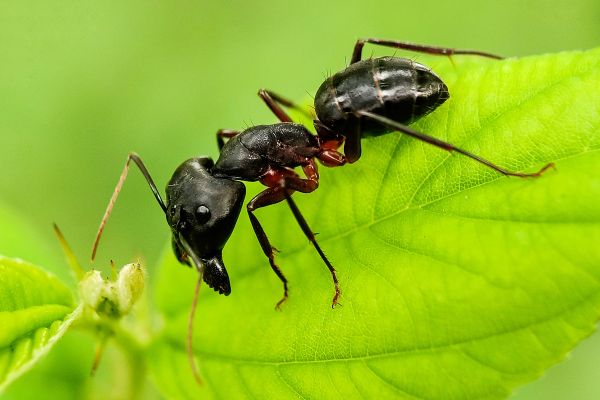
- Natural Hunting Instincts
Cats are natural predators. Their ancestors relied on hunting small prey for survival, and this instinct remains strong in domestic cats. Ants are tiny and move quickly, making them an attractive target for a cat’s hunting instincts. When a cat sees ants scurrying around, it may instinctively pounce, swat, or even eat them as part of their natural behavior.
- Attraction to Movement
The rapid and erratic movement of ants can be very enticing to cats. Cats are visual hunters, and the sight of tiny ants moving around can trigger their predatory response. This behavior is similar to how cats are drawn to laser pointers or moving toys. The quick, unpredictable movements stimulate a cat’s hunting instincts, making ants an intriguing and irresistible target.
- Olfactory Stimulation
Ants release pheromones that can attract cats. Ants use these chemical signals to communicate with each other, and cats may find the scent intriguing. The olfactory stimulation provided by these pheromones can pique a cat’s curiosity, leading them to sniff, paw at, and ultimately eat the ants.
- Nutritional Curiosity
While ants are not a significant source of nutrition, they do contain small amounts of protein and fat. In some cases, a cat might be driven by nutritional curiosity to eat ants. This is more likely if the cat needs more stimulation or variety in their diet.
Potential Risks of Eating Ants
Although eating a few ants is generally not harmful to cats, there are some potential risks to be aware of:
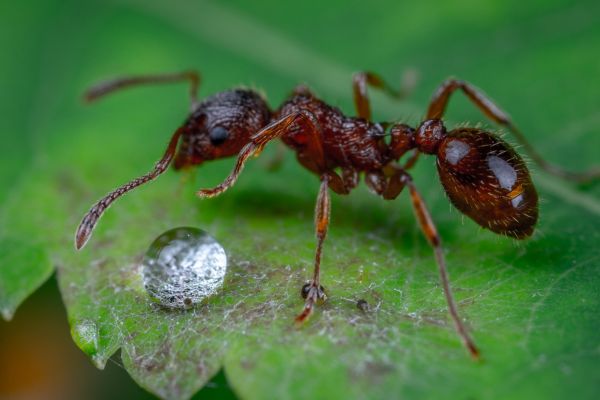
- Ingesting Harmful Chemicals
One of the main risks associated with cats eating ants is the ingestion of harmful chemicals. Many ants carry formic acid, which they use as a defense mechanism. While a small amount of formic acid is unlikely to harm a cat, consuming large quantities could lead to gastrointestinal upset. Additionally, if you use chemical ant baits or insecticides in your home, there is a risk that your cat could ingest these toxic substances by eating poisoned ants.
- Allergic Reactions
Some cats may be allergic to the proteins found in ants. Symptoms of an allergic reaction can include itching, swelling, and respiratory issues. If your cat shows any signs of an allergic reaction after eating ants, it is essential to consult your veterinarian.
- Choking Hazard
While ants are tiny, they can still pose a choking hazard, especially if your cat tries to devour them or in large numbers. Ensuring that your cat does not have access to large colonies of ants can help mitigate this risk.
How to Get Rid of Ants
To prevent your cat from eating ants, it’s essential to address the root of the problem by eliminating the ant infestation. Here are some effective methods to get rid of ants in your home:
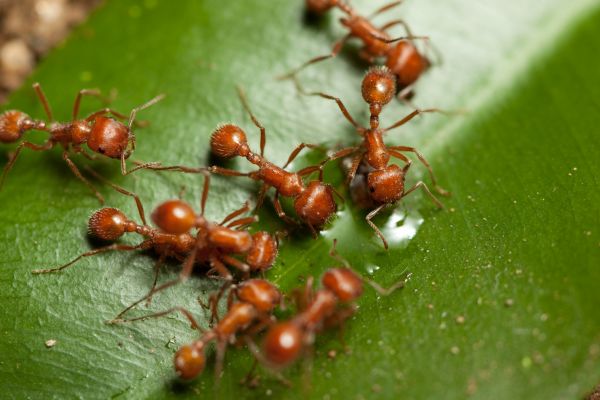
- Keep Your Home Clean
Ants are attracted to food and water sources. Keeping your home clean and free of crumbs, spills, and food residues can help deter ants. Regularly clean countertops, floors, and pet feeding areas. Store food in airtight containers and ensure that garbage bins are sealed.
- Seal Entry Points
Ants can enter your home through tiny cracks and gaps. Inspect your home for potential entry points, such as gaps around windows, doors, and plumbing fixtures. Seal these entry points with caulk or weatherstripping to prevent ants from gaining access to your home.
- Use Natural Repellents
Several natural repellents can help keep ants at bay without posing a risk to your cat:
- Vinegar: Mix equal parts vinegar and water in a spray bottle and spray it around entry points and areas where you’ve seen ants. The pungent smell of vinegar can disrupt ant trails and deter them from entering.
- Lemon Juice: Similar to vinegar, lemon juice can disrupt ant trails. Mix lemon juice with water and spray it around your home.
- Cinnamon: Sprinkle cinnamon around entry points and areas where ants are present. The pungent smell can repel ants.
- Diatomaceous Earth: This natural powder can be sprinkled around entry points and ant trails. It is safe for pets and humans but deadly to ants, as it dehydrates them.
- Use Pet-Safe Ant Baits
If natural repellents are not effective, you can use pet-safe ant baits. These baits are designed to be safe for pets while effectively eliminating ants. Place the baits in areas where your cat cannot reach them, such as behind appliances or in cabinets.
- Professional Pest Control
If you have a severe ant infestation, it may be necessary to seek professional pest control services. Inform the pest control company that you have pets, and they can use pet-safe methods to eliminate the ants.
Preventing Future Ant Infestations
Once you’ve eliminated the current ant infestation, take steps to prevent future infestations:

- Regular Cleaning: Maintain a clean home to reduce attractants for ants.
- Routine Inspections: Regularly inspect your home for potential entry points and seal them promptly.
- Proper Food Storage: Store food in airtight containers and keep pet food sealed when not in use.
- Outdoor Maintenance: Keep the perimeter of your home free of debris and standing water. Trim back vegetation that touches your home to reduce ant pathways.
FAQs | Why Do Cats Eat Ants?
Q.1 Is it harmful for cats to eat ants?
In most cases, eating a few ants is not harmful to cats. However, there are potential risks, such as ingesting harmful chemicals or experiencing an allergic reaction. If your cat shows signs of illness after eating ants, consult your veterinarian.
Q.2 Why is my cat eating ants?
Cats may eat ants due to their natural hunting instincts, attraction to movement, olfactory stimulation from ant pheromones, or nutritional curiosity. Understanding these reasons can help you address the behavior.
Q.3 How can I prevent my cat from eating ants?
To prevent your cat from eating ants, eliminate the ant infestation in your home. Keep your home clean, seal entry points, use natural repellents, and consider pet-safe ant baits if necessary.
Q.4 Are there natural ways to get rid of ants?
Yes, there are several natural ways to repel ants, including using vinegar, lemon juice, cinnamon, and diatomaceous earth. These methods can help keep ants at bay without posing a risk to your cat.
Q.5 When should I call a professional for an ant infestation?
If you have a severe ant infestation that you cannot control with DIY methods, it may be necessary to seek professional pest control services. Inform the pest control company that you have pets, and they can use pet-safe methods to eliminate the ants.
Q.6 Can ants carry diseases that affect cats?
While ants are not known to carry diseases that affect cats, they can carry bacteria and pathogens. It’s essential to eliminate ant infestations to reduce the risk of your cat ingesting potentially harmful substances.
Conclusion | Why Do Cats Eat Ants?
Cats eating ants can be a curious and sometimes concerning behavior for pet owners. Understanding the reasons behind this behavior and addressing any potential risks is crucial for your cat’s health and safety. By keeping your home clean, sealing entry points, using natural repellents, and considering pet-safe ant baits, you can effectively eliminate ants and prevent your cat from eating them.
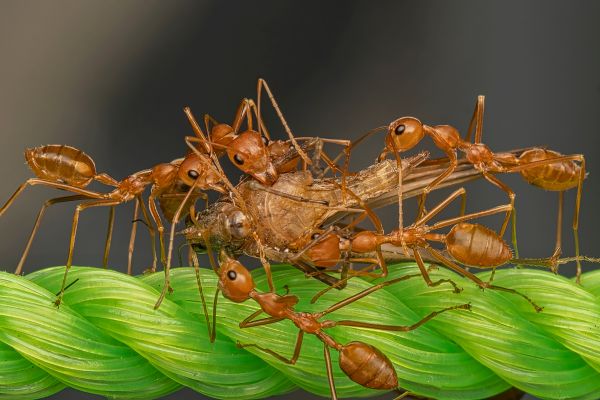
If you’re wondering, why do cats eat ants? It could be due to the movement of the ants, which may trigger your cat’s hunting instincts. Some cats are simply curious or find the tiny creatures interesting to catch. However, it’s important to ensure that the ants are not harmful to your cat. If you have a severe ant infestation, seek professional pest control services that use pet-safe methods. With these steps, you can ensure a safe and ant-free environment for your feline friend.
Also read : Are Microgreens Safe For Cats? | A Powerful Boost or a Hidden Risk?